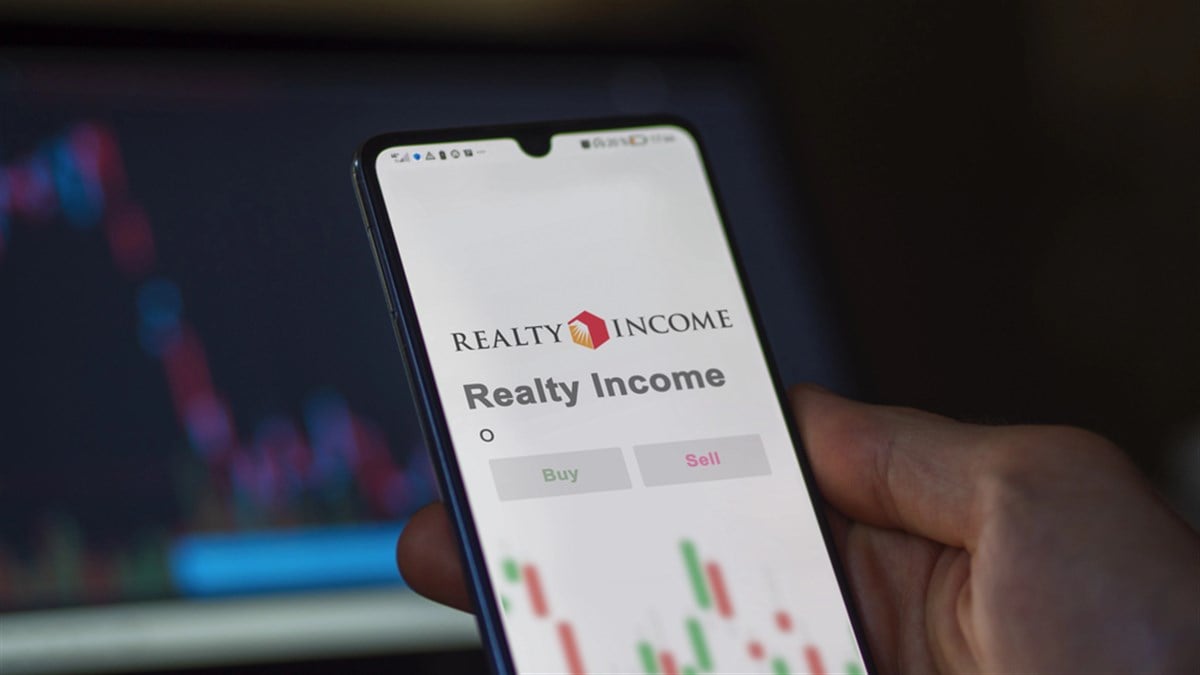|
|
|

|
|||||

|
|

Realty Income Corporation (NYSE: O) is often referred to as "The Monthly Dividend Company®," and it has been a reliable and essential holding for income investors for many years. This blue-chip stock is currently gaining the attention of market watchers due to an unusual combination of circumstances.
Shifts in the Real Estate Investment Trust (REIT) sector have caused Realty Income's stock price to trade well below its highs and closer to its 365-day average. This has pushed Realty Income’s dividend yield to an attractive 5.59%, which is higher than the industry average of around 4%.
The company’s current situation presents a clear opportunity for income-seeking investors to secure a consistent, high-performing monthly income stream. When you examine the company's core strengths in the light of the current volatile market and economic outlook, it starts to suggest that the timing may be right to consider Realty Income for a strategic investment.
Realty Income's reputation comes from its remarkably consistent and straightforward business model. As a Real Estate Investment Trust (REIT), it owns a massive portfolio of over 15,600 commercial properties. Its success is built on the triple-net (NNN) lease.
An NNN lease is straightforward: the tenant covers most property-level expenses, including taxes, insurance, and maintenance. This model protects Realty Income from rising property costs, creating a predictable cash flow that funds its monthly dividend.
A high-quality real estate portfolio backs the strength of this model.
The company focuses on tenants with strong financial health, with approximately 40% of its annualized rent coming from clients with investment-grade credit ratings. This signifies a roster of highly dependable tenants.
This operational strength has resulted in one of the best dividend track records available. Realty Income is a member of the Dividend Aristocrats, a select group of companies that have increased their dividend for at least 25 straight years. Its dividend safety is best measured by its Adjusted Funds From Operations (AFFO) payout ratio, which remains healthy and sustainable.
This means the company's cash flow comfortably covers its dividend payments, providing a buffer for continued payouts and future growth.
While strong fundamentals make Realty Income a solid long-term holding, a key economic factor, interest rates, sharpens the current investment case.
High-yield dividend stocks, such as Realty Income, often move opposite to interest rates. When rates go up, as they have recently, safer investments like government bonds become more attractive. This can create a headwind for REIT valuations. However, the situation reverses when the Federal Reserve is expected to lower rates. Realty Income’s dividend becomes more appealing, boosting investor demand and lifting its stock price.
This relationship highlights the current opportunity. Realty Income is built to handle rate changes with its fortress balance sheet. It holds a strong A-level credit rating from S&P and Moody's, allowing it to borrow money on good terms.
Notably, over 90% of its debt is at a fixed rate, which shields the company from the expense of rising interest rates. The company's leverage is also managed conservatively, with a net debt-to-EBITDA ratio of 5.4x, a standard industry metric indicating that its debt level is manageable relative to its earnings.
From a valuation standpoint, the stock's Price-to-AFFO multiple is trading at a reasonable level compared to its historical averages. This suggests that the market may have already priced in much of the risk associated with the higher-rate environment, potentially limiting further downside.
Looking ahead, the Federal Reserve's potential decision to lower rates up to twice in the remainder of 2025 should benefit the stock in two ways:
Realty Income presents a compelling package in summer 2025: a best-in-class business, a world-class dividend history, and a strong balance sheet. This is combined with a potential economic tailwind that could benefit the stock.
The current price allows investors to establish a position offering a strong initial yield. While all investments carry risk, Realty Income is designed to be a cornerstone for long-term income, not a vehicle for short-term speculation.
Wall Street's consensus 12-month price target of around $61 reinforces the investment case. Achieving that price would represent capital appreciation of approximately 7.5% from current levels.
When combined with the 5.59% dividend yield, this implies a potential total return in the double-digit range over the next year, making a strong argument for its place as one of the market's most reliable dividend machines.
Before you make your next trade, you'll want to hear this.
MarketBeat keeps track of Wall Street's top-rated and best performing research analysts and the stocks they recommend to their clients on a daily basis.
Our team has identified the five stocks that top analysts are quietly whispering to their clients to buy now before the broader market catches on... and none of the big name stocks were on the list.
They believe these five stocks are the five best companies for investors to buy now...
The article "Why Realty Income’s 5.59% Yield Makes It a Must-Buy REIT" first appeared on MarketBeat.
| 6 hours | |
| Feb-16 | |
| Feb-16 | |
| Feb-12 | |
| Feb-12 | |
| Feb-11 | |
| Feb-10 | |
| Feb-10 | |
| Feb-10 | |
| Feb-10 | |
| Feb-10 | |
| Feb-06 | |
| Feb-06 | |
| Feb-06 | |
| Feb-05 |
Join thousands of traders who make more informed decisions with our premium features. Real-time quotes, advanced visualizations, backtesting, and much more.
Learn more about FINVIZ*Elite